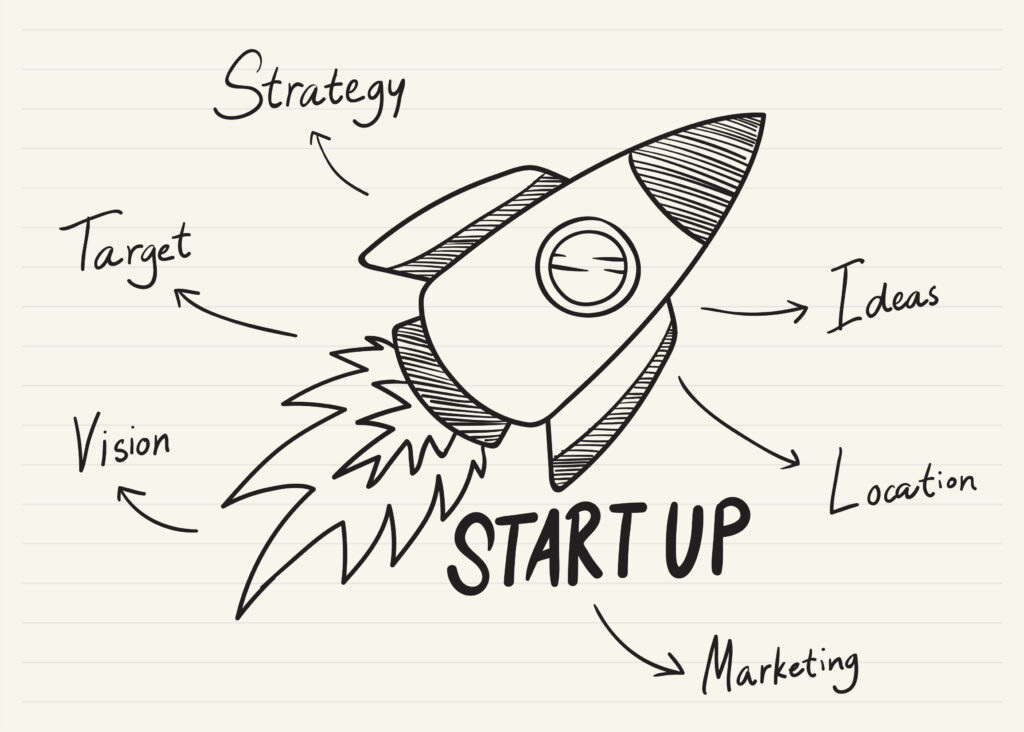Introduction
In today’s fast-paced and ever-evolving business landscape, startups play a pivotal role in driving innovation, economic growth, and job creation. Starting a startup offers an exhilarating opportunity for aspiring entrepreneurs to bring their vision to life and make a meaningful impact. However, the path to building a successful startup is riddled with challenges and uncertainties. In this article, We will discover how to start a successful startup and navigate the challenges on your journey to entrepreneurial success.
Finding Your Startup Idea
The first step in starting a successful startup is to find a compelling idea that addresses a market gap or solves a problem. By identifying unmet needs and untapped opportunities, you can position your startup for success. Conducting thorough market research is crucial to understand the market dynamics, competition, and potential demand for your product or service. Additionally, leveraging your personal passions, skills, and expertise can give you a competitive edge and fuel your motivation throughout the startup journey.
Developing a Solid Business Plan
Once you have a clear startup idea, it’s essential to develop a comprehensive business plan. This plan serves as a roadmap, guiding your decisions and actions as you navigate the entrepreneurial landscape. Start by defining your startup’s vision and mission, articulating the long-term goals and the impact you aim to create. A thorough market analysis will help you understand your target audience, identify market trends, and assess the competitive landscape. From there, you can craft a viable business model, outlining your revenue streams, pricing strategy, and distribution channels.
Building a Skilled and Committed Team
Building a team of talented individuals who share your vision and complement your skills is crucial for startup success. Determine the key roles and skills required to execute your business plan effectively. Attracting and retaining top talent can be challenging, but offering competitive compensation packages, creating a positive work culture, and providing growth opportunities can help in attracting the right team members. Effective communication, collaboration, and fostering a sense of teamwork will maximize the productivity and synergy within your startup.
Securing Funding and Resources
Securing adequate funding and resources is a critical aspect of starting a startup. You’ll need financial resources to cover operational costs, product development, marketing, and expansion plans. Explore different funding options such as bootstrapping, angel investors, venture capital, or government grants, depending on your startup’s stage and funding needs. Crafting a compelling pitch deck that clearly communicates your startup’s value proposition, market potential, and growth strategy is crucial when approaching potential investors. Additionally, building strategic partnerships and leveraging available resources can provide access to expertise, networks, and support services that can propel your startup forward.
Product Development and Minimum Viable Product (MVP)
Transforming your startup idea into a tangible product or service requires a structured approach to product development. Refine your idea based on market feedback and customer insights to ensure a strong product-market fit. Embrace lean startup methodologies, such as the Build-Measure-Learn cycle, to iterate and refine your product or service incrementally. Launching a Minimum Viable Product (MVP) allows you to gather valuable user feedback, validate your assumptions, and make informed decisions on product enhancements and future iterations.
Marketing and Customer Acquisition
Developing a comprehensive marketing strategy is crucial to gaining visibility, attracting customers, and establishing your brand. Identify your target audience, their needs, and preferences to tailor your marketing messages effectively. Build a strong brand identity that differentiates your startup from competitors and resonates with your target market. Implement various marketing channels, both traditional and digital, to reach your audience. Additionally, invest in effective customer acquisition strategies and leverage growth hacking techniques to optimize customer acquisition costs and drive sustainable growth.
Scaling and Sustainable Growth
As your startup gains traction and acquires customers, it’s important to plan for scaling operations and expanding your market reach. Evaluate your startup’s scalability and identify growth opportunities. Develop strategies to optimize your operations, streamline processes, and manage resources efficiently. Adapting to challenges and staying competitive in a rapidly evolving business landscape is crucial for sustainable growth. Continuously analyze market trends, monitor customer feedback, and adjust your strategies to maintain a competitive edge.
Legal Considerations for Startups
Understanding the legal framework and complying with regulations is essential for the long-term success of your startup. Familiarize yourself with the legal requirements and obligations specific to your industry and geographical location. Choose the appropriate legal structure for your startup, such as a sole proprietorship, partnership, limited liability company (LLC), or corporation, considering factors like liability protection, tax implications, and ownership structure. Protecting your intellectual property, such as trademarks, copyrights, or patents, is also crucial to safeguard your startup’s unique assets. Seek legal counsel to ensure compliance and minimize legal risks.
Conclusion
Starting a successful startup requires meticulous planning, strategic thinking, and unwavering determination. By following the steps outlined in this article, you can set yourself on the path to building a thriving startup. Remember, entrepreneurship is a journey that requires continuous learning, adaptation, and perseverance. Embrace the challenges, leverage the opportunities, and stay focused on your vision. The startup landscape is a dynamic and exciting realm, and with the right mindset and strategies, you can turn your entrepreneurial dreams into reality.
